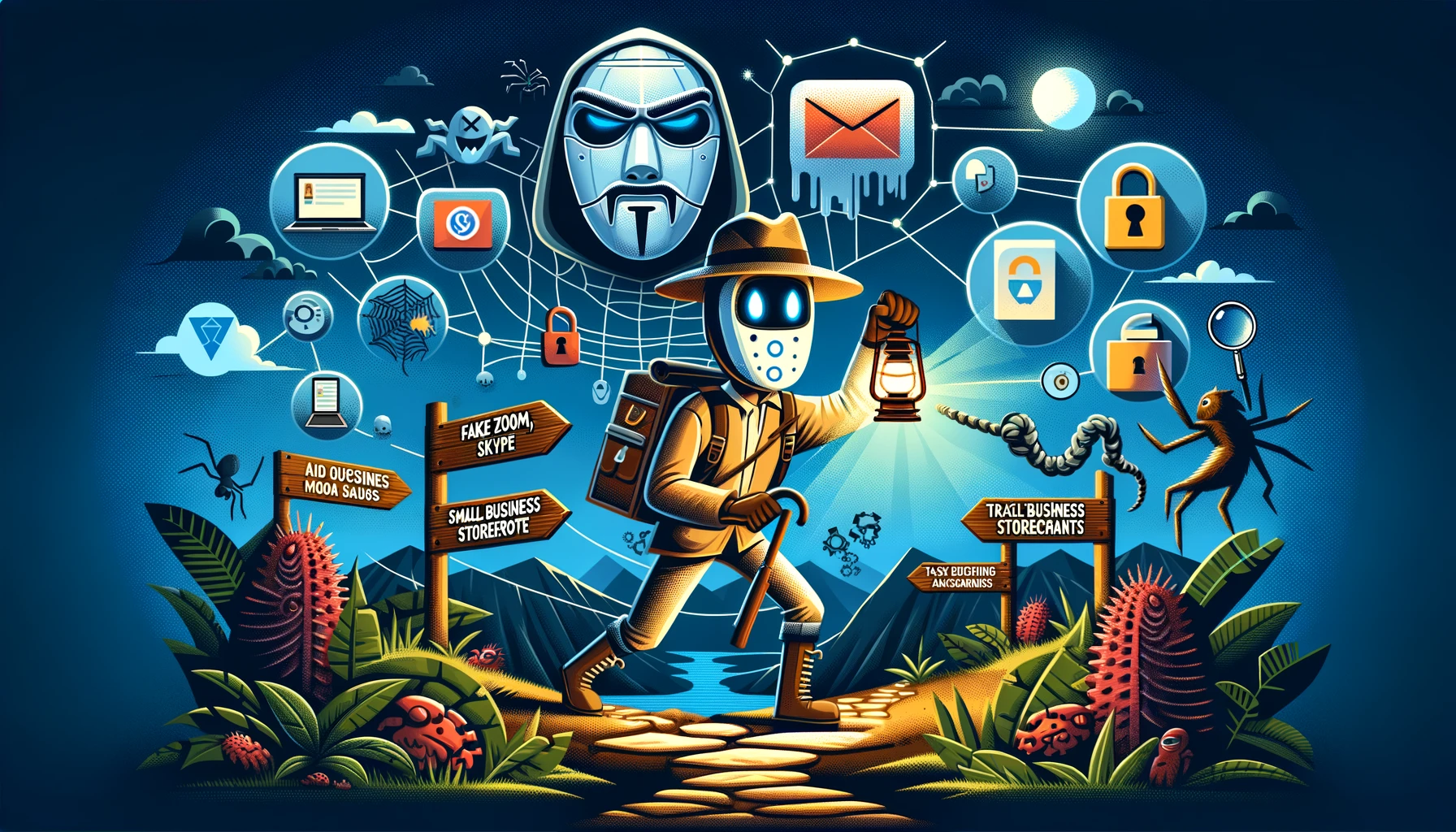This is a security newsletter I’ve put together as part of our security awareness program. This leans more towards healthcare and news items that are more general in nature. I’ll have a more technical focused newsletter later this week that’s targeted at security teams. Feel free to take this newsletter and use it internally as part of your security awareness program.
The Great Zoom-Skype-Google Masquerade: Beware of digital doppelgängers. Fake Zoom, Skype, and Google Meet sites are the latest traps set by cyber tricksters. These spoofed meetings can trick users into downloading harmful software that compromises their computer. Ensure you’re clicking on the real deal to keep those malware masqueraders at bay. Beware of QR codes that will try to steal credentials as part of this type of attack.
Beware of fake websites mimicking popular brands!: Typosquatting attacks are surging, and cybercriminals are exploiting user mistakes to steal login credentials and spread malware. Typosquatting is where an attacker registers a similar domain to one a person is familiar with. This increases the chance a malicious link will be clicked.
Small Businesses Hit Hard by Cybercrime: Some social engineering techniques highlighted in the article include: malicious ads; attackers starting a conversation before trying to get the person to take an action; and the move to PDF attachments. These types of attacks help launch ransomware against small businesses.
Beware of AI-Driven Voice Cloning in Vishing Scams: The Better Business Bureau (BBB) has issued a warning about the rise of voice phishing (vishing) scams utilizing AI-driven voice cloning technology. Scammers can now mimic voices convincingly with just a small audio sample, leading to fraudulent requests for money transfers or sensitive information. Tips to Stay Safe:
Pause Before Acting: Resist the urge to act immediately on unexpected requests, even if they seem to come from a familiar voice.
Verify Directly: Contact the supposed caller using a known, saved number—not the one provided in the suspicious call.
Question the Caller: Ask specific questions that an impostor would struggle to answer correctly.
Secure Your Accounts: Implement multi-factor authentication and verify any changes in information or payment requests.
Update on Change Healthcare Cyberattack Recovery: Change Healthcare is on track to bring its systems back online by mid-March following a cyberattack that has caused widespread disruption since February 21. The cyberattack has significantly affected healthcare operations nationwide, with providers facing difficulties in payment processing, insurance verification, and clinical data exchange. This highlights why security awareness is so important. Identifying and reporting security threats to the organization is the responsibility of everyone.
Beware of Tax Season Scams Targeting SMBs and Self-Employed Individuals: As tax season unfolds, a new scam has surfaced targeting small business owners and self-employed individuals. Scammers are using emails to lure victims to a fraudulent site, claiming to offer IRS EIN/Federal tax ID number applications. However, this service is free through the IRS, and the scam site is designed to steal personal information, including social security numbers, creating a significant risk for identity theft and fraud. A Microsoft report identifies green card holders, small business owners, new taxpayers under 25, and older taxpayers over 60 as prime targets for these scams. Check Point has some example phishes in their tax scam article.
Apple Users Beware: "MFA Bombing" Phishing Attacks on the Rise: Leveraging Apple's password reset system attackers can bombard users with password reset prompts. If a person clicks "allow" on one of the prompts, the attackers can gain access to the user's account. The attackers may also call the person pretending to be Apple support. Some ways to protect yourself from this attack include not clicking on any of the prompts and contacting Apple directly if you receive a suspicious call.

